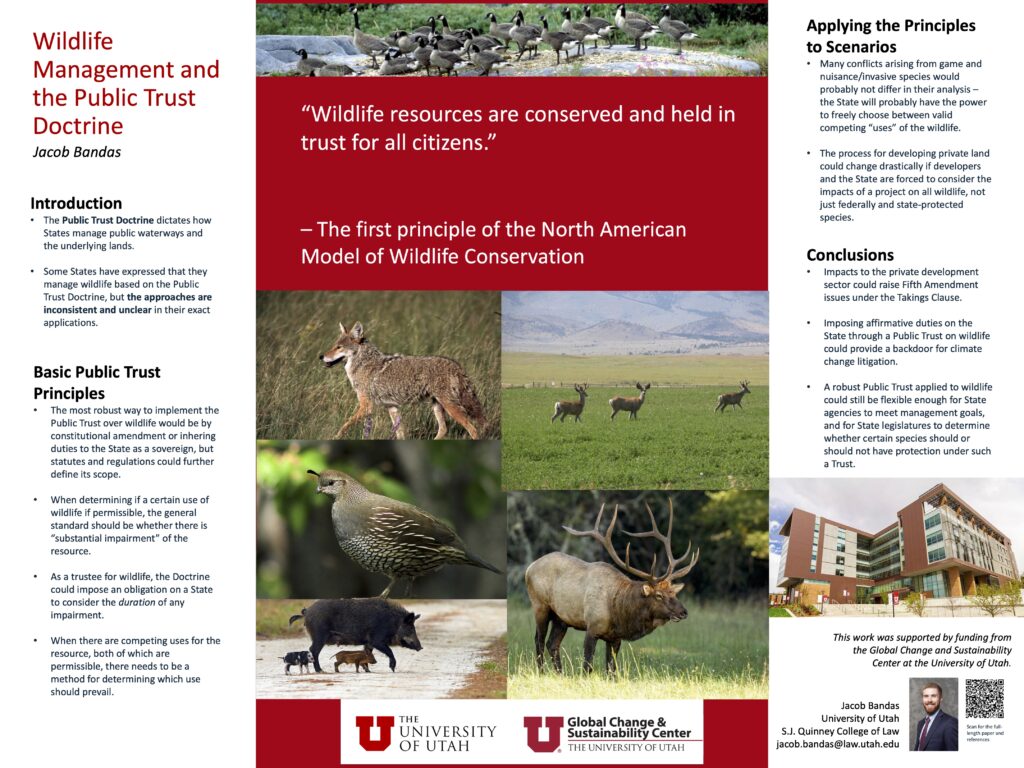Wildlife Management and the Public Trust Doctrine
Bio
I am currently a third-year law student at the SJ Quinney College of Law. I am graduating in May 2023 with a Juris Doctor and a certificate in Environmental and Natural Resource Law. I previously earned an M.S. in natural resource management and policy and a B.A. in history with a minor in parks and conservation from Texas A&M University. I am passionate about natural resource law, policy, and management, and I plan on working in this area for the federal government.
Abstract
The Public Trust Doctrine is a legal concept that generally holds that the public is entitled to certain natural resources. In American law, this has traditionally meant that states hold navigable waterways and their underlying lands as a trustee for the public. Because the land under the waterway is held in trust, the state cannot relinquish possession of the land if doing so would "substantially impair" the public's use of the waterway. Recently, there has been a growing movement in to expand the American view of the Public Trust Doctrine to include other natural resources, such as the atmosphere and wildlife, as a method for addressing climate change. This paper explored a future in which the Public Trust Doctrine framework currently used for analyzing waterways could work as a wildlife management method by synthesizing existing law into a workable hypothetical framework.
Narrative
While many States say that they manage wildlife for the public's benefit, not many define what this actually means. This paper set out to present a re-imagined framework for wildlife management that would better protect the public's interest in an important natural resource. This paper also explored several hypothetical situations to see how such management would operate in real-world situations.

